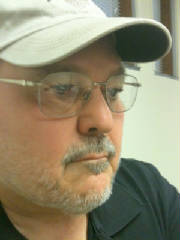Out of 347,178 new titles published
in traditional print format in the United States in 2011, 60,075 titles, or 17.3 percent, were fiction, according to figures
prepared by Bowker, the firm that publishes the standard reference work Books in Print.
Another
1,185,445 titles were published as e-books, which have exploded in the last few years. Fiction is strongest in e-books, where
it accounted for 61 percent of unit sales, according to the 2010–2011 U.S. Book Consumer Demographics & Buying Behaviors
Annual Review.
Exactly what these figures prove about fiction I’m not really sure. But for me, fiction is losing
its relevance. I have believed that since 9/11. When reality outstrips imagination, when reality presents so many important
challenges, why should we spend our time paying attention to or caring about made-up people and situations?
I
have been an admirer of the writer Gay Talese for many years. His views on nonfiction have influenced mine. In 2002, in a
short article for Nieman Reports, Talese wrote about his way of looking at the world: “It is seeing nonfiction
as a creative form of telling the story of [our] time. Creative. Not falsified. Not making up names. Insisting on real names.
Not composite characters. No taking liberties with factual information. …”
This view resonates with me. The older I get, the more I value nonfiction as literature, for understanding our world and
ourselves. More powerful than fiction—because it’s real!
I grew up avidly consuming
fiction. I started with science fiction. Over time I threw a broader net: Hemingway’s novels and short stories; the
psychological novels of Georges Simenon; the novels of John Irving and Philip Roth. I’m not arguing that writers like
these are not worth reading. I remain a fan of the fiction produced by Jim Harrison, for example (even though I like his nonfiction
more). But nonfiction makes up a greater and greater proportion of my reading.
I used to consume
thrillers like potato chips. Anymore, if I try to read such stories, I think to myself that no rational person would make
that decision, go there, or do that. (Just as, when watching an action movie in the theater, I think: C’mon, nobody
could survive that fall, that crash, that shooting.)
Fiction, even so-called realistic fiction, requires
what is called “the willing suspension of disbelief.” We have to be willing to lose ourselves in a created, artificial
reality. I find that increasingly hard to do. I’m no longer a willing partner in the necessary suspension of disbelief.
Maybe
I’m just getting crankier as I age. It also may have something to do with being horrified at how glaringly uneducated
we Americans seem to have become and how unable we seem to be to think critically anymore. I blame the media for oversimplifying
everything and the Internet for making it nearly impossible to distinguish real information from pseudo information. (More
on this subject at a later time.)
If ever we needed to live in the real world rather than a make-believe
world, it’s now, as we face climate change, wars, environmental degradation, economic inequity, and the need for sustainable
energy. Nonfiction can be just as artful and entertaining as fiction. In terms of relevance, it’s no contest.
© 2013 by Editorial Enterprises, Inc., and Donald C. Sarvey


